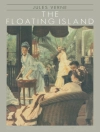Teleny, co-written by Oscar Wilde and his circle, is an audacious exploration of forbidden love and desire, framed within the context of late 19th-century Fin de Siècle literature. This erotic novel delves deeply into the complex and often tumultuous relationship between the protagonist, a young man, and his enigmatic lover, the musician Teleny. The prose is richly evocative and laced with decadent flourishes, embodying the aestheticism that Wilde championed. As a testament to the exploration of sexual identity and same-sex love, the narrative unfolds within a framework of intimate confessions and philosophical musings, critiquing the societal conventions of its time while inviting the reader into a world of unrestrained passion and self-discovery. Oscar Wilde, a prominent figure of the Aesthetic Movement, was renowned for his wit and flamboyant style; his personal experiences with sexuality and society undoubtedly influenced his portrayal of the themes in Teleny. At a time when such relationships were taboo, Wilde’s collaboration on this text reflects both his artistic freedom and the tensions surrounding sexual identity within Victorian norms. Wilde’s own experiences and the subsequent societal repercussions may offer insights into the complexities faced by the characters in the novel. Teleny is not only an important work for its audacious themes but also a significant piece of literary history that struggles against the constraints of its time. Readers seeking an authentic voice that speaks to love’s intricacies and life’s hidden passions will find in Teleny a compelling invitation to explore the depths of human emotion, as well as a reflection on the turbulent relationship between art and morality. This novel is essential for those interested in queer literature and the evolution of eroticism in literature.
Sobre el autor
Oscar Wilde (1854-1900), the flamboyant and witty Anglo-Irish playwright, novelist, and poet, was a towering figure in the late Victorian era. Known for his barbed and clever use of the English language, Wilde became one of London’s most popular playwrights in the early 1890s. His best-known works include ‘The Picture of Dorian Gray’ and the plays ‘The Importance of Being Earnest’ and ‘An Ideal Husband’. Wilde’s writing was characterized by his espousal of aestheticism, dedication to art for art’s sake, and biting social commentary. ‘Teleny’, a novel often attributed to Wilde, is a somewhat controversial work, given its erotic content and the contentious debate over its authorship. Despite the speculation, ‘Teleny’ is considered part of the Wilde canon by many scholars, who view it as a bold exploration of homosexuality, a taboo subject in Wilde’s time. His literary career, however, came to an abrupt end when Wilde was imprisoned for gross indecency due to his homosexual relationships. The trials and the incarceration profoundly affected Wilde’s personal life and his standing in the society of the day. Despite his fall from public grace, Wilde remains a celebrated and widely studied figure in literature, known for his sharp wit, lyrical prose, and a tragic end that highlights the societal constraints of his era.












